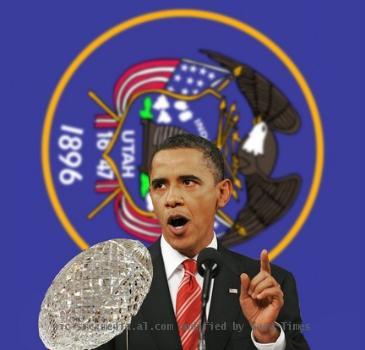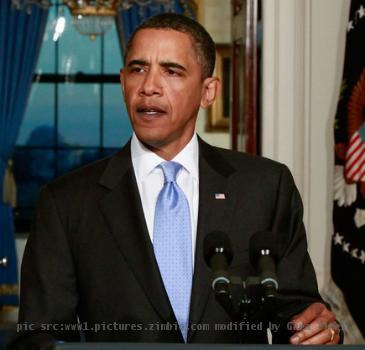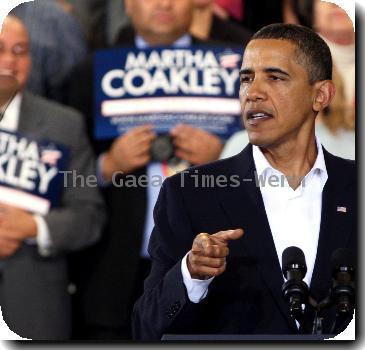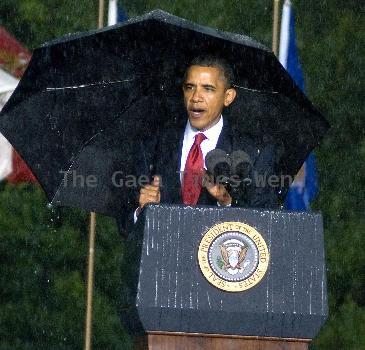Congressional panel raps oil company heads; Criticizes planning for BP-like major oil spill
By H. Josef Hebert, APTuesday, June 15, 2010
Congress grills oil execs on prep for major spill
WASHINGTON — Top executives from four major oil companies questioned the design and drilling strategy Tuesday of BP’s ill-fated Deepwater Horizon well and told lawmakers they would have drilled it differently.
But the executives, facing sharp questions at a House hearing, conceded that the entire industry was not well-equipped to deal with a major blowout a mile under water and that the emphasis in well-drilling must be on preventing a such a disastrous accident in the first place.
The oil company leaders said they expect tougher standards and requirements on drilling and more government involvement in assuring the rules are followed. They said they are reluctantly accepting a moratorium on deepwater drilling but hope the ban can be lifted as soon as possible.
President Barack Obama was expected to announce a new chief of the agency that regulates drilling, perhaps Tuesday night during his address to the nation on the spill.
The executives tried to distance themselves from BP, even as lawmakers said their own drilling plans and spill response blueprints were “virtually identical” to the ones used by BP.
Rep. Henry Waxman, D-Calif, chastised the industry for “cookie cutter” response plans and drilling strategies. The other companies “are no better prepared to deal with a major oil spill than was BP,” said Waxman, setting the tone for a tense hearing.
One lawmaker after another expressed frustration at BP’s inability to stop oil gushing from its stricken well as the chief executives of ExxonMobil, Chevron, ConocoPhillips and Shell — as well as BPAmerica — sat shoulder to shoulder at the witness table.
ExxonMobil’s Rex Tillerson said the emphasis must be on preventing blowouts in he first place “because when they happen, we’re not very well equipped to deal with them.”
“That’s just the fact of the enormity of what we’re dealing with,” said Tillerson.
The House Energy and Commerce Committee hearing unfolded as Obama was on the Gulf Coast for a second day and pledged to “fight back with everything we’ve got” against the spreading oil.
A majority of Americans disapprove of how he has handled the spill, according to a new Associated Press-GfK poll.
The frustration, especially among lawmakers from Gulf states, was clear at the hearing as they peppered the executives with questions. The sharpest were aimed at BP America president Lamar McKay.
Anthony Weiner, D-N.Y., said BP can’t be trusted. Rep. Cliff Stearns, R-Fla., told McKay he should resign and Rep. Joseph Cao, R-La., a Vietnamese-American, suggested an even more severe response. “During the Samurai days, we’d just give you the knife and ask you to commit hari-kari,” said Cao.
McKay repeatedly said BP was ready to pay any legitimate claims from people or businesses harmed by the spill, but he said no decision has been made on whether the company would suspend its quarterly dividends, nor whether it would agree to set up an independent $20 billion liability fund as Obama has proposed.
Rep. Edward Markey, D-Mass., said the executives should be embarrassed by response plans that included as a participant a scientist no longer alive. The executives acknowledged embarrassment.
In a particularly tense exchange, Markey repeatedly told McKay he should apologize to the American people for “lowballing” estimates of oil that was gushing from the damaged wellhead.
McKay said “those were not BP’s estimates” but those of the government’s unified command dealing with the response.
But he said: “We are sorry for everything the Gulf Coast is going through.”
The hearing marked the first time that the chief executives of the major oil companies — which last year earned a combined $64 billion — were called before Congress since the explosion unleashed the country’s worst oil spill.
Rep. Jay Inslee, D-Wash., questioned why BP paid CEO Tony Hayward $36 million last year while spending just $10 million on research.
“Do you think that is appropriate prioritization?” Inslee asked McKay, who did not respond.
Waxman’s committee questioned McKay on internal company e-mails and documents that the lawmaker said showed that BP made repeated decisions in the days and hours before the explosion that increased the risk of a major well blowout.
The circumstances leading up to the well blowout are being examined as part of the investigations under way, said McKay. “The well design is not an unusual design for the Gulf of Mexico,” he insisted.
Were mistakes made by BP? asked Waxman of the other four executives sharing the witness table.
ExxonMobil’s Tillerson said the spill would not have occurred if BP had properly designed its deepwater well. “We do not proceed with operations if we cannot do so safely,” said Tillerson.
“We would not have drilled the well in that way,” said James Mulva, the CEO of ConocoPhillips.
As BP’s McKay sat inches away, Shell president Marvin Odum said, “It’s not a well that we would have drilled the way it was set up.”
Chevron CEO John Watson said some of BP’s practices aimed at well integrity “we would not put in place.”
“We must learn from this accident,” said Watson.
So far, 114 million gallons of oil have poured into the Gulf under the highest estimate described by scientists — a rate of more than 2 million gallons a day. BP has collected 5.6 million gallons of oil through its latest containment cap on top of the well, or about 630,000 gallons per day.
A brief demonstration erupted at the back of the hearing room as the session concluded, as several members of Greenpeace protested offshore oil drilling. They were quickly escorted out of the room by Capitol police, and two were arrested.
Associated Press writers Frederic Frommer, Matthew Daly, Liz Sidoti, Trevor Thompson, Erica Werner, Ray Henry and Brian Skoloffe contributed to this report.
Tags: Accidents, Barack Obama, Coastlines And Beaches, Corporate Crime, Energy, Environmental Concerns, Government Regulations, Industry Regulation, North America, United States, Washington






